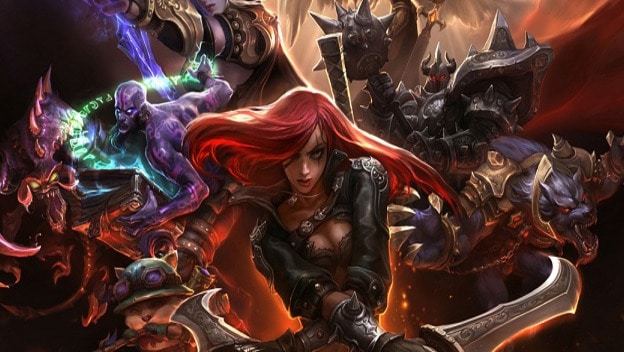Slowly but surely, the world of competitive gaming is growing. Not only are multiplayer shooters all the rage, there’s the explosion of MOBA gaming in the strategy world and the ever-popular player-versus-player combat in MMORPGs. Game developers are rushing to add multiplayer modes to their games, and the biggest competitive online games are making fortunes for their developers.
Still, competitive gaming remains the purview of a relatively limited segment of society. Largely male—even near-exclusively male in some genres—and mostly under thirty, the multiplayer game world tends to be hostile to anybody who is “different” or is more interested in having fun than winning at all costs. While gaming in general continues to diversify, the competitive online multiplayer world doesn’t reflect that reality. If competitive gaming is going to keep growing as a hobby and gain widespread acceptance at the e-sport level, it needs to grow up in several ways.
Social Games Need Social Organization
Why isn’t there a more diverse group of people involved in competitive gaming? In the simplest terms, it’s a social thing. People like to organize themselves in groups based on similar identities and interests, yet most multiplayer games toss all players into a single undifferentiated pool. Sometimes these pools are sorted vaguely by player ability level, (the “ladder” system) but that doesn’t help players find others who are like-minded to play with.
Think about physical sports. There are many ways for people to become involved in sports at different levels, from the casual office softball tournament to competitive semi-professional teams. While many gamers sort themselves into guilds and clans, there’s little official support for different kinds of communities in competitive games. This makes it very intimidating for a new player to get into a multiplayer game, particularly one who is new to gaming. It also makes it difficult for gamers who are more interested in having fun than in winning to find a niche within the often hyper-aggressive world of multiplayer gaming.
Companies that want to foster growing competitive multiplayer communities should look into providing more social options for players, helping people connect with (and play against) others who have similar preferences and interests. Not only would this make games accessible to a wider range of people, it would reduce conflict between players who have vastly different goals for their multiplayer experience.
The Rules Are Always Changing
Players and fans would throw a fit if the rules of football, basketball, or soccer changed every few weeks or months, but that’s essentially what happens in a lot of multiplayer games. Whether it’s in the form of constant “balance” patches for MOBA and MMORPG games, or of powerful new weapons that change the game in multiplayer shooters, multiplayer titles have a tendency to punish people who don’t live and breathe a particular game.
This not only limits the player base for competitive video games, it limits the audience for e-sport tournaments. Who wants to watch a bunch of people playing a game for which the rules and terminology change faster than the casual fan can keep up with? There’s a reason why many of the most popular e-sport games are those that are relatively stable (like StarCraft 1) or feature action that’s fairly easy to follow even if you don’t know all the subtleties (like one-on-one fighting games). Solving this challenge is difficult, but companies can help by avoiding decision-making that creates a lot of flux in their games.

We Need To Clean Up Our Acts
There are few places where people are more likely to run into abusive speech and behavior than in competitive online gaming. The casual racism, violent sexism, regular anti-gay slurs, and general bullying that goes on in many matches is simply unacceptable. This toxic environment even boils over into some official e-sport tournaments and into harassment and threats of players outside the games themselves. Many game companies are just starting to wake up to this issue, but this is a problem that we all have to solve together.
Nobody deserves to be threatened, cussed out, or bullied in any kind of game, whether it’s a physical sport or an e-sport. Companies need to take swift and decisive action when abusive players are called to their attention, and players need to take responsibility for reporting these players and holding companies to account when they allow abusive behavior to take place unhindered on their servers. There are healthy competitive gaming communities out there, so it’s not an unsolvable problem. It’s up to everyone involved in competitive gaming to give jerks the boot and show good sportsmanship while playing. We’ll all be better off for it in the end.
 | By Becky Cunningham Lead Contributor Date: April 3, 2013 |
